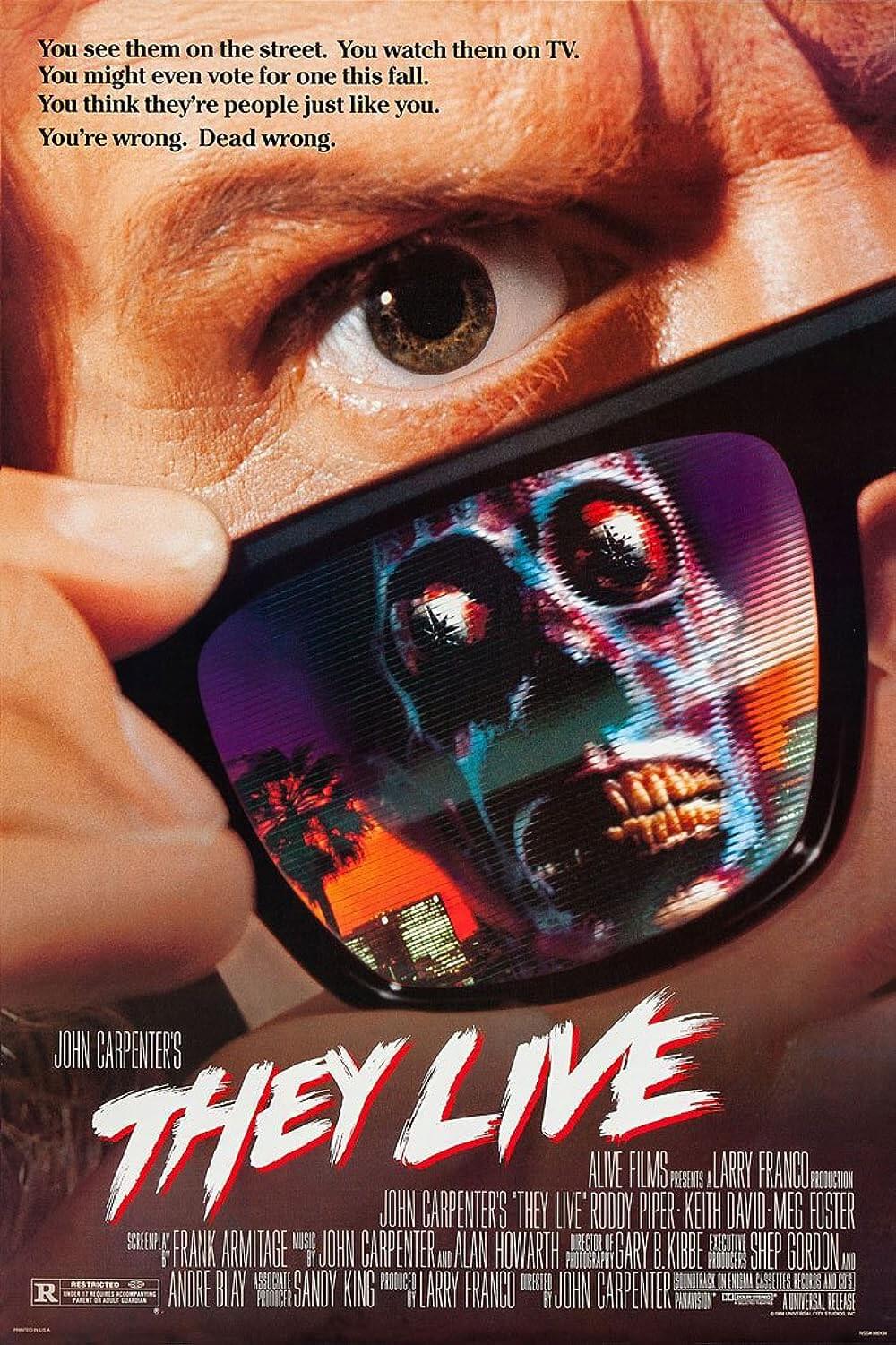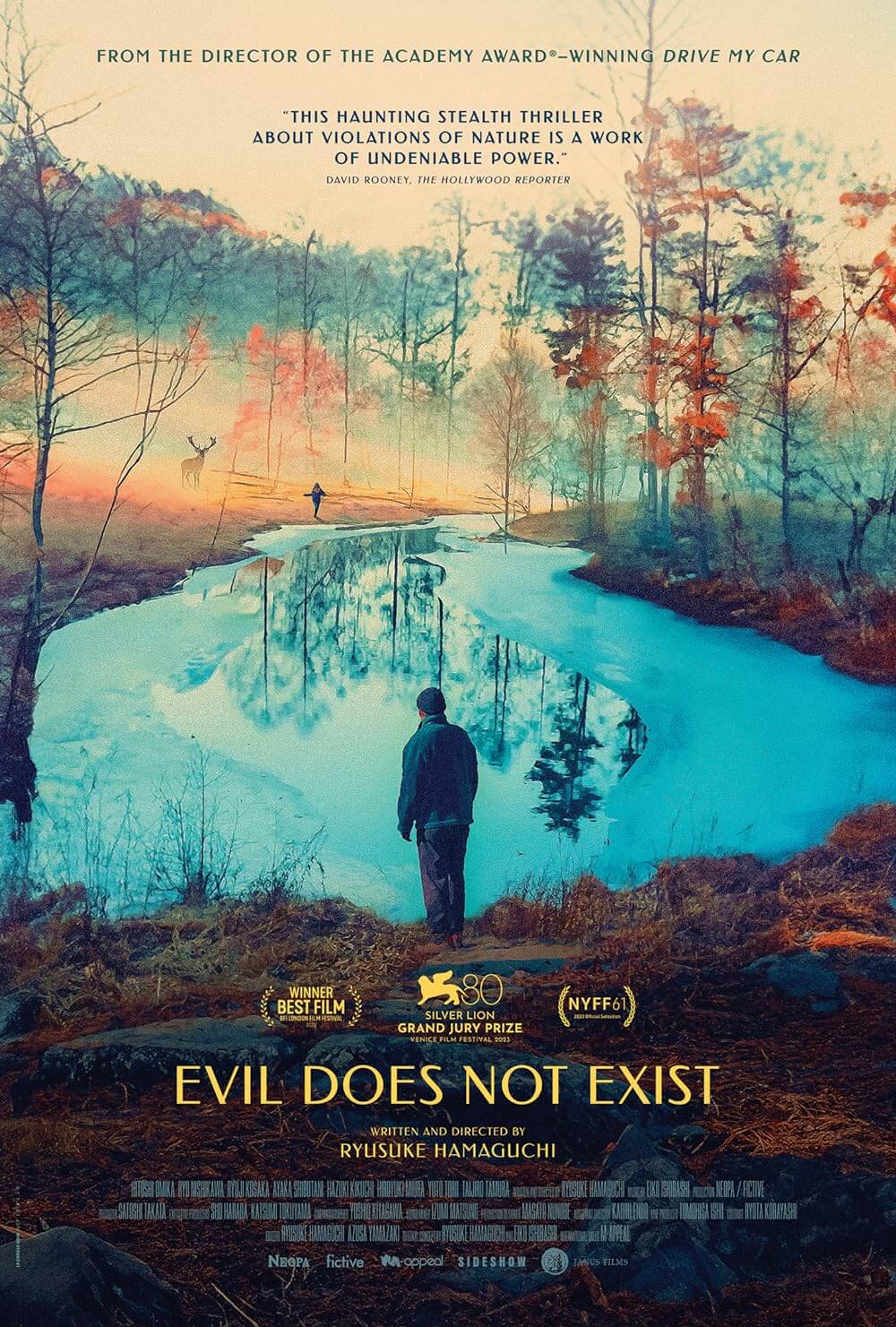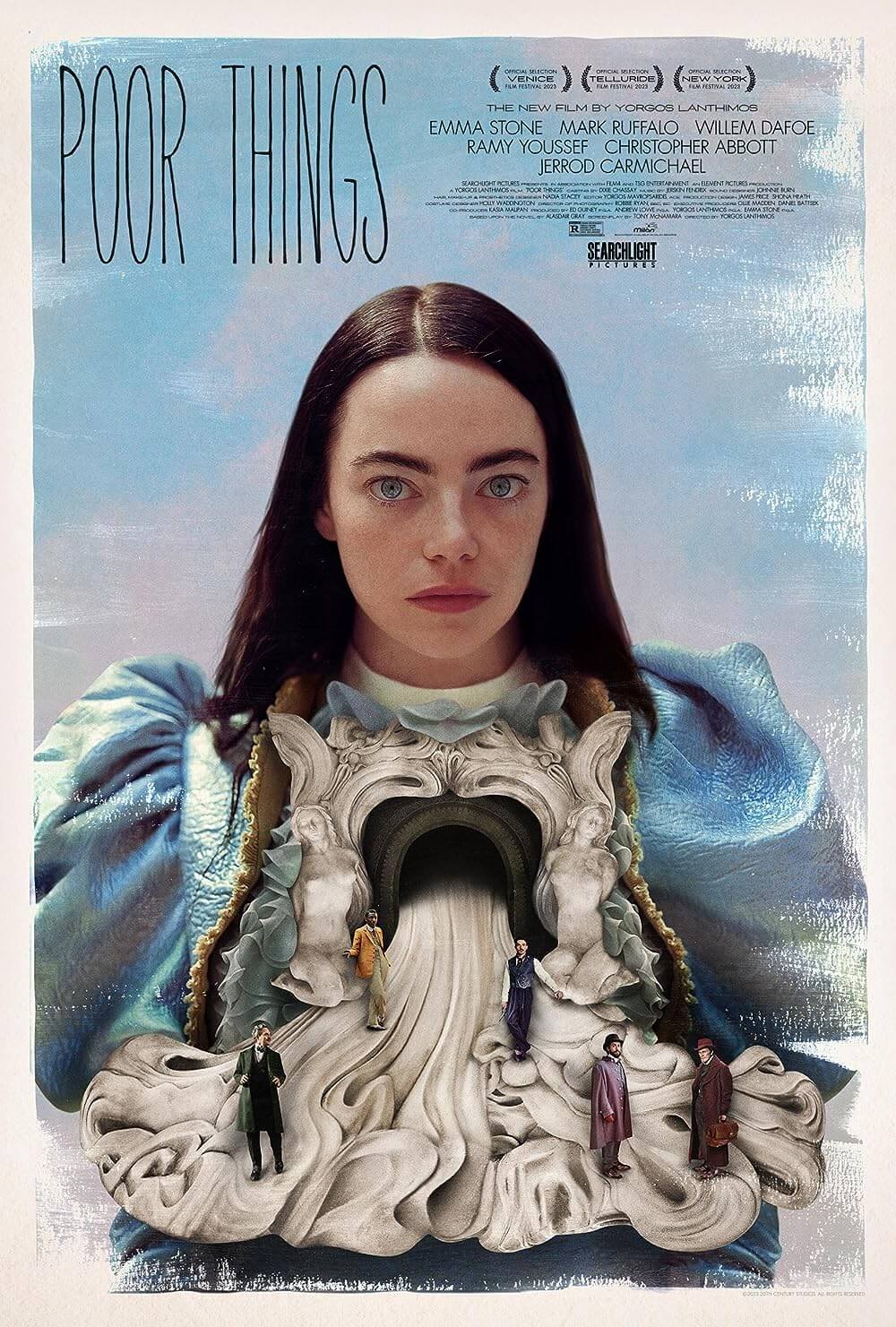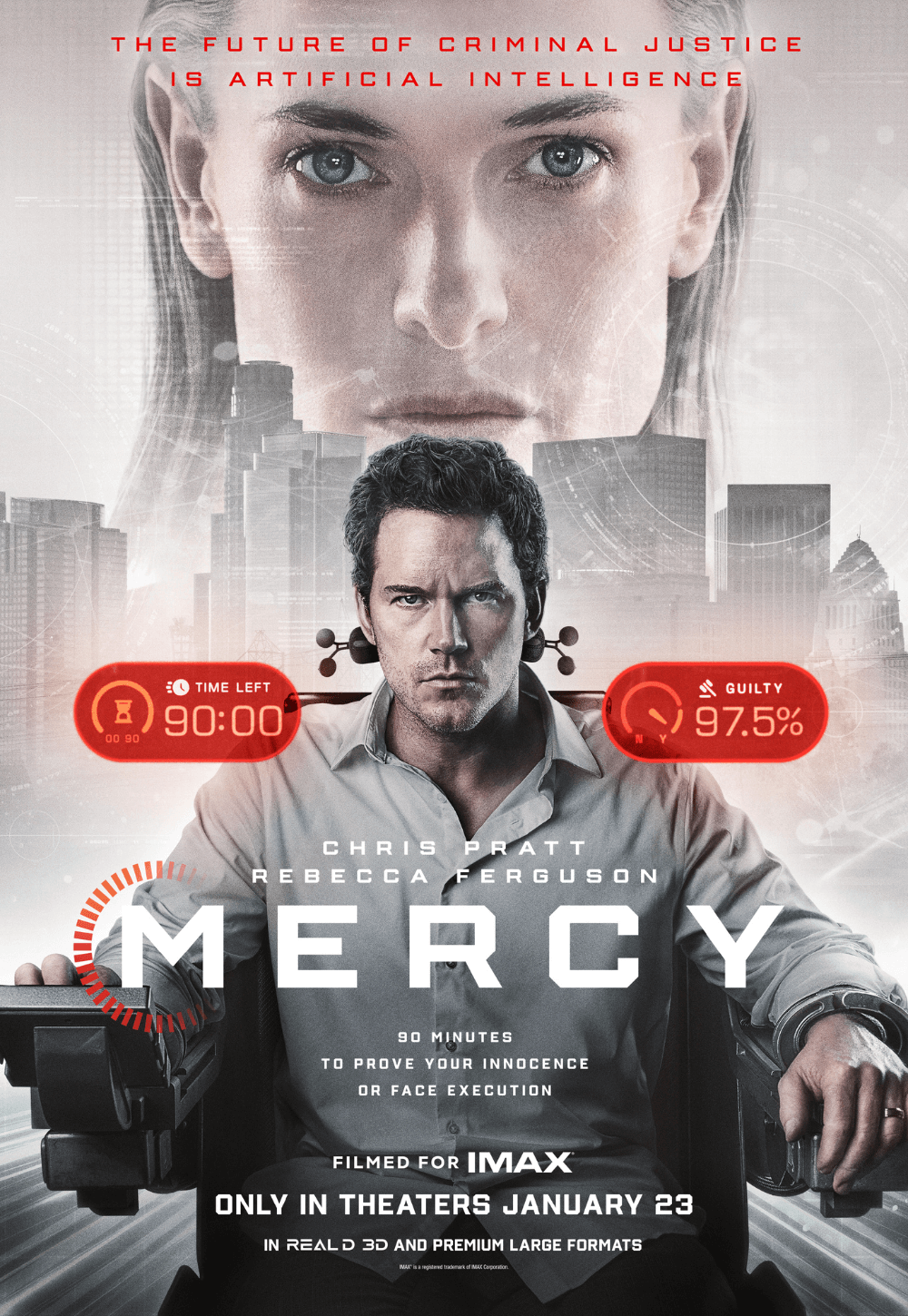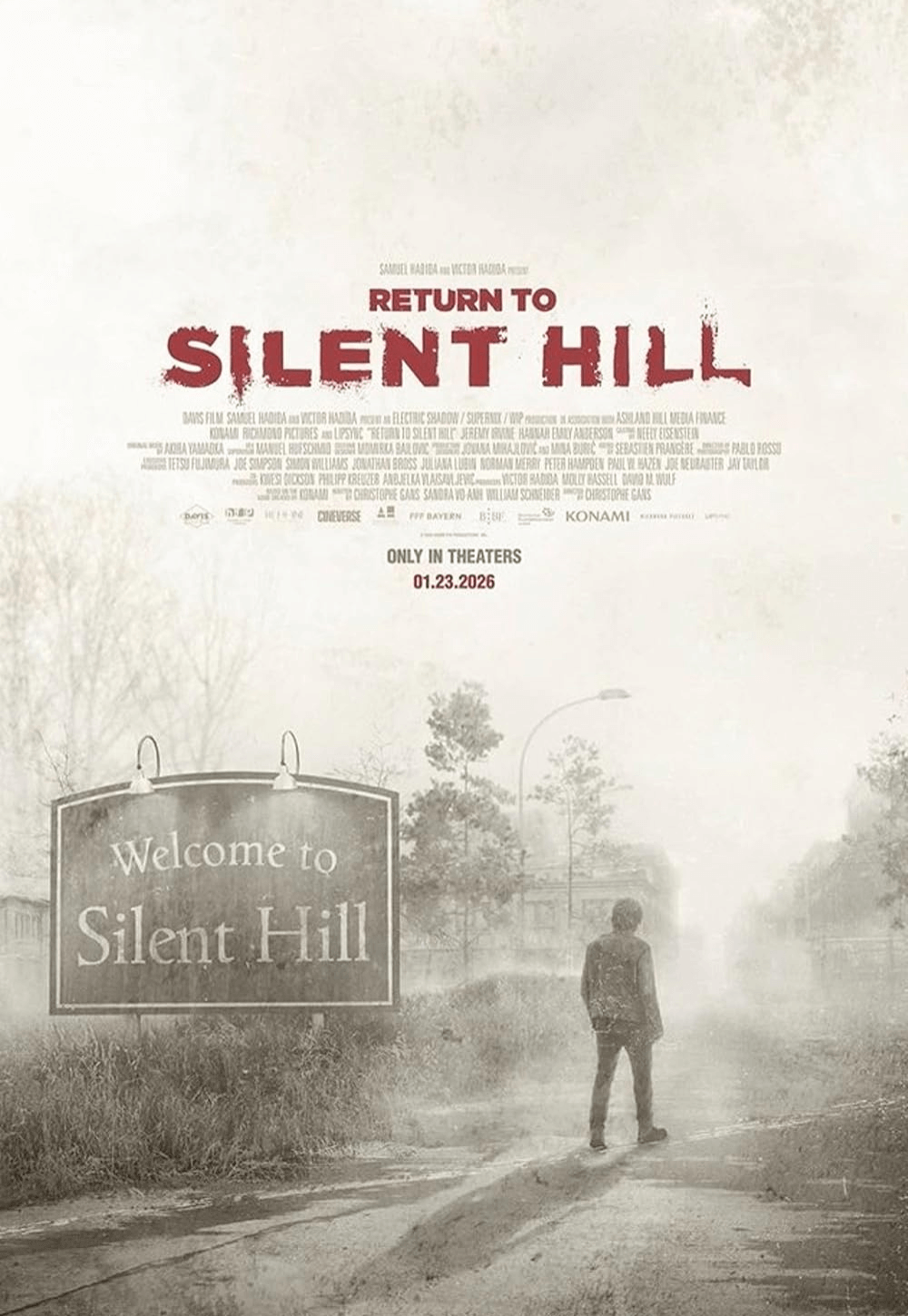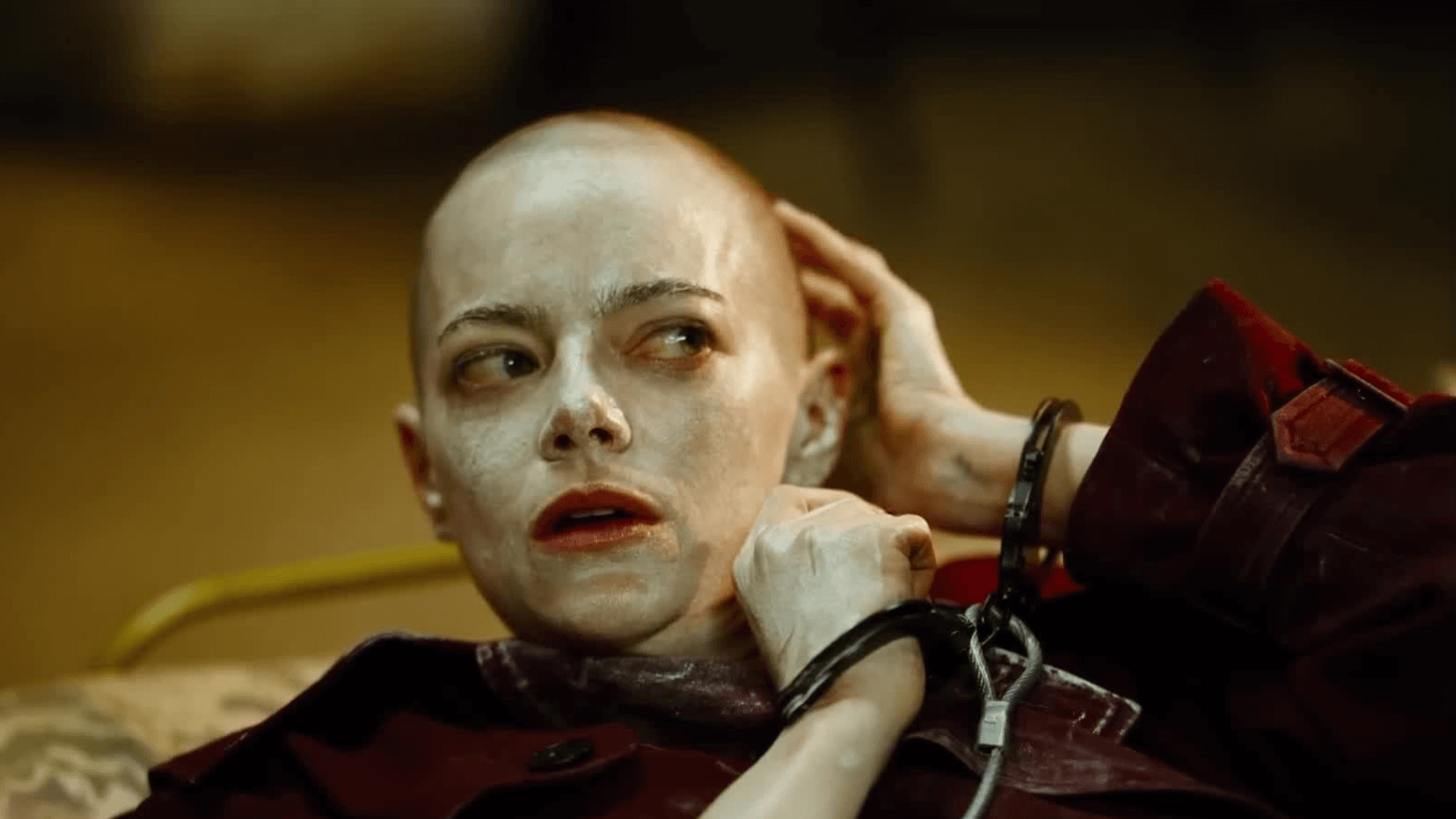
Bugonia
By Brian Eggert |
Note: This review is based on a screening at the Twin Cities Film Festival on October 22, 2025.
“It all starts with something magnificent,” says Jesse Plemons, who plays Teddy, a disturbed apiarist determined to defend some of Earth’s smallest and most vital creatures. Teddy explains to his autistic cousin Don, played by newcomer Aidan Delbis, how bee pollinators help produce a third of humanity’s food. He compares the process to sex, “but cleaner, and nobody gets hurt.” For Bugonia, another inspired collaboration between director Yorgos Lanthimos and stars Plemons and Emma Stone, the magnificent something starts with South Korean director Jang Joon-hwan’s Save the Green Planet! (2002)—a goofball comedy about an unhinged guy who kidnaps an executive, convinced that he’s an alien scheming to take over Earth. Lanthimos and screenwriter Will Tracy, a former editor-in-chief for The Onion, craft a hilarious and paranoid adaptation that confronts the class divide, the corruptive effect of online saturation, and human ecology. Filled with terrific performances, it’s Lanthimos’ most accessible film to date, but it’s no less a grim assessment of humanity, with the twisted, satiric, and bleak worldview one has come to expect from the Greek auteur.
Bugonia marks the director’s fourth pairing with Stone, who, since appearing in The Favourite (2018), has continued to experiment and to test her limits as a performer. Although she began her career by playing girl-next-door types with an edge (see 2010’s Easy A), her work with Lanthimos has demonstrated there’s no limit to her range. Stone has given some unfathomably complex performances in these films, such as her singular turn in Poor Things (2023), where she had to invent a character the likes of which has never been played before—and fittingly, it earned Stone an Oscar for Best Actress (her second, after 2016’s La La Land). Next came her three distinct roles in Lanthimos’ Kinds of Kindness (2024), an anthology about our desperate, self-destructive need for love and acceptance. Most actors never get a chance to play even a single role so varied, much less so many that defy the usual archetypes. Here, she gives another incredible, controlled performance that also somehow feels spontaneous and alive.
Stone plays Michelle Fuller, the CEO of the pharmaceutical company Auxolith. She’s a relentless lady boss who feigns openness to diversity and flexible work schedules for the sake of optics; however, she’s more focused on profits and wants the work done, regardless of personal sacrifice. In a couple of short scenes, Lanthimos sizes her up as a sharp-minded, phony, callous executive who knows how to manipulate people. Her modern corporate office and sleek, minimalist mansion present a stark contrast to the surrounding town, which is distinguished by its rundown strip malls and shabby homes. Among them is Teddy’s farmhouse, where he and Don eventually bring Michelle after kidnapping her. Surrounded by fields and woodlands, the poorly maintained house rests at the bottom of a hill, up which Teddy keeps his beehives. Visualizing this class divide, Lanthimos and his regular editor, Yorgos Mavropsaridis, cut together a montage juxtaposing Michelle’s privileged life with Teddy and Don training to capture her.
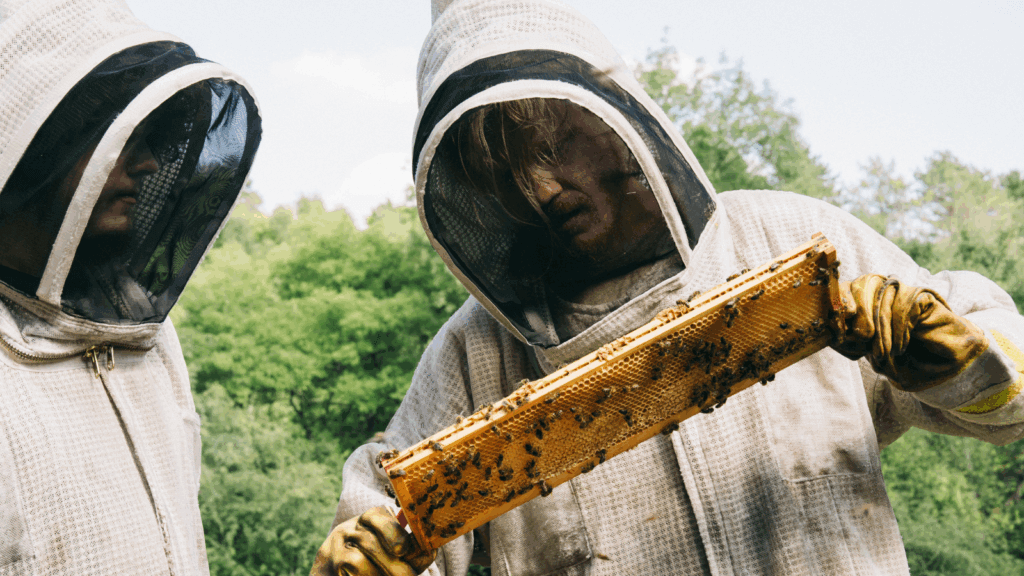
Teddy believes Auxolith is responsible for the widespread Colony Collapse Disorder, not only among his bees but worldwide, due to its production of toxic chemicals. Drone bees abandoning their queen and hive present unmissable parallels to corporate hierarchies and the line between the haves and have-nots. But the problem goes deeper than that. Teddy claims to have proof that Michelle is an alien from the Andromeda galaxy, bent on destroying our world. If you know where to look, it’s obvious, he tells Don. Her appearance, for one—no woman in her forties could look so youthful without extraterrestrial influence. Teddy considers himself a member of the Human Resistance, a party of two, including himself and Don. His ambitions aren’t political. Alt-right, leftist, Marxist; Teddy has tried them all. “99% of activism is just personal exhibition,” he resolves. He’s thinking of the planetwide big picture. In four nights, during a lunar eclipse, when her mother ship will appear in orbit, he plans to join her aboard to negotiate for the human race. Michelle, of course, denies his theory and, in her best corporate-mediator tone, attempts to transact her release.
By this time, Lanthimos has immersed us in Teddy and Don’s world, filled with microwave dinners and the former’s menial warehouse job at Auxolith, preparing boxes for shipment. They both look bedraggled. Teddy appears greasy and gaunt, and Plemons lends his most unhinged but determined expressions to the character. Don is more sympathetic, given that he’s clearly being manipulated. He doesn’t quite understand the stakes and goes along with his cousin’s plan—which includes chemical castration for them both, so sexual imperatives won’t distract from their mission—only because he has no one else in his life. Teddy seems more imbalanced with his computer models of alien spaceships and goofy technobabble that justifies his actions, but he’s tragic, too. His mother (Alicia Silverstone), seen mainly in black-and-white flashbacks, remains comatose after undergoing a failed Auxolith treatment for opioid addiction. “This one’s on us,” Michelle said at the time, along with an empty promise to pay reparations and “do better.”
Teddy’s mom influenced his paranoia with her own crackpot ideas, and so her casting is fitting, given some of Silverstone’s anti-vaccination and tampons-cause-infertility beliefs. The internet echo chamber did the rest. And so, Teddy and Don shave Michelle’s head—because her species uses hair like a radio antenna to communicate, Teddy claims—then slather her body in antihistamine cream that will supposedly neutralize her alien abilities. They strap her to a bed in Teddy’s basement and proceed with an interrogation. Initially unfazed, Michelle goes into business-speak mode. “Let’s just unpack the problem here,” she says in a detached manner that only further proves to Teddy that she’s an alien, determined to talk around the matter at hand. Even though she’s a victim in this scenario, Lanthimos and Stone create a pitiless character whose icy mannerisms suggest there’s not one iota of human empathy inside her. This is most evident when she speaks to Don, tying him in logical knots until finally his mind snaps in a shocking scene. Bugonia also introduces the awkward local sheriff, Casey (Stavros Halkias), who might’ve been the story’s hero, except for his predatory history with Teddy, which adds another note of tragedy to Teddy’s past.
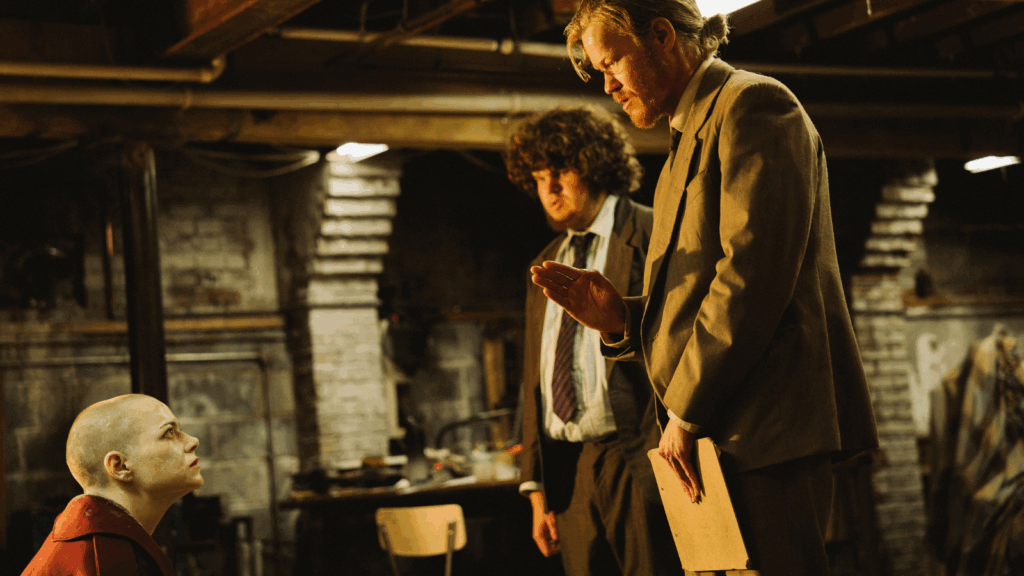
Over the ensuing days, the film counts down to the lunar eclipse with images of Earth floating in space, gradually rotating with each new chapter to reveal not an orb but a flat planet—a sly image with a double meaning: It’s at once a remark on Flat Earthers, who have emerged in recent years out of online communities that fuel conspiracy theories like the ones Teddy subscribes to. It’s also a visual clue to the film’s finale, which, for those familiar with Save the Green Planet!, will come as no shocker. In the former meaning, Bugonia shares much in common with Eddington, the divisive new film by Ari Aster (a producer here), in its estimation of internet silos that fragment our culture. The latter interpretation has chilling but riotous consequences, leading to a reveal that may divide viewers. Seeing the film at the Twin Cities Film Fest, I could sense some of the reserved Midwestern audience unwilling to go along with where Lanthimos wanted to take them. Meanwhile, I was an eager passenger, embracing the film’s bleak conclusion with a delighted grin.
A film of few locations and characters, Bugonia plays like a tense kidnapping thriller for much of its two-hour runtime, save for the expressive visual choices by production designer James Price and cinematographer Robbie Ryan. The honey-yellow hellscape that is Teddy’s home, including his subterranean cell for his prisoner, offers a stark contrast to Michelle’s antiseptic home and office, further delineating the class division. Even after enduring torture by her captors—when Michelle refuses to admit she’s an alien, Teddy subjects her to intense electric shocks, at which point he claims to realize she has a “royal genetic code” and begins to treat her like a dignitary—Michelle proves more intelligent and cruel than her kidnappers. “You can’t beat me,” she gloats. “Because you are a loser, and I am a winner.” However, Jerskin Fendrix’s grandiose score suggests there’s something more at stake than merely a CEO held by two unbalanced lunatics; it’s music that evokes an eerie epicness, as though playing under a macabre, monumental narrative with world-shattering implications.
In the end, both Teddy and Michelle want to save the planet, albeit in different ways. Without a trace of Hollywood’s penchant for fundamentalism and moral reckoning, Bugonia is a film that believes—or rather, knows—the planet would be better without humankind. Alan Weisman explores this idea in his 2007 nonfiction book The World Without Us, for which he talked to scientists about what would happen if humans disappeared overnight: most human-made structures would deteriorate quickly, and Mother Nature would reclaim the Earth. The planet would heal over time, returning, in a few hundred years, to the former glory it enjoyed for billions of years before people mucked it up. The only evidence of humankind would be some leftover metal contraptions, bronze statues, and monumental structures such as the Pyramids and Mount Rushmore. If humanity is an experiment, the subjects have run amok in the test environment, demonstrating over and over that they cannot live in harmony with their surroundings. The title implies a solution: a bugonia (not to be confused with the flower, begonia) is a Greek word referring to the ancient belief, explored by writers from Ovid to Virgil, that bees would spring from a dead cow—that life springs from death. And sure enough, in the final, apocalyptic images of Bugonia, there is hope yet. Just not for humanity.

Thank You for Supporting Independent Film Criticism
If the work on DFR has added something meaningful to your love of movies, please consider supporting it.
Here are a few ways to show your support: make a one-time donation, join DFR’s Patreon for access to exclusive writing, or show your support in other ways.
Your contribution helps keep this site running independently. However you choose to support the site, please know that it’s appreciated.
Thank you for reading, and for making this work possible.
Brian Eggert | Critic, Founder
Deep Focus Review


